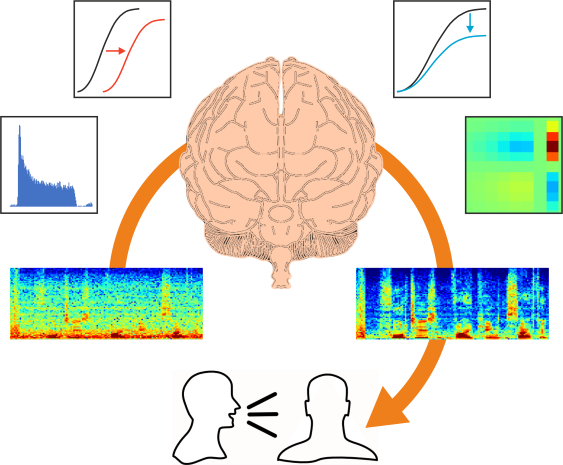Abstract
A primary goal of our senses is to provide an accurate and reliable representation of the world around us. Because our acoustic environments are constantly changing – for example, when we step out from a crowded, noisy bar onto a quiet street – it is essential that the brain is able to analyse sounds in a flexible fashion. As a result of their remarkably adaptable properties, the responses of auditory neurons can be matched to the constantly changing statistics of the sounds that reach our ears. This helps to maintain neural sensitivity over the most commonly encountered values and to generate representations of sound features in the brain that are tolerant to the presence of background noise and room reverberation. Neural adaptation to changes in sound inputs can also occur over longer time scales, and plays a key role in enabling our auditory perceptual abilities to at least partially recover from the effects of hearing loss. In this talk, I shall consider the neural circuits and strategies that underlie these adaptive processes, which collectively highlight the highly dynamic way in which sounds are processed in the brain.

Biography
Andrew King is a Wellcome Principal Research Fellow, Professor of Neurophysiology and Director of the Centre for Integrative Neuroscience in the Department of Physiology, Anatomy and Genetics at the University of Oxford. He studied physiology at King’s College London and obtained his PhD from the MRC National Institute for Medical Research. Apart from a spell as a visiting scientist at the Eye Research Institute in Boston, he has worked at the University of Oxford since then, where his research has been supported by fellowships from the Science and Engineering Research Council, the Lister Institute of Preventive Medicine and the Wellcome Trust. Andrew’s research uses a combination of experimental and computational approaches to investigate how the auditory brain adapts to the rapidly changing statistics that characterize real-life soundscapes, integrates other sensory and motor-related signals, and learns to compensate for the altered inputs resulting from hearing impairments. He is a winner of the Wellcome Prize in Physiology, a Fellow of the Royal Society, the Academy of Medical Sciences and the Physiological Society, and is a Senior Editor at eLife.
This will be a hybrid event.
